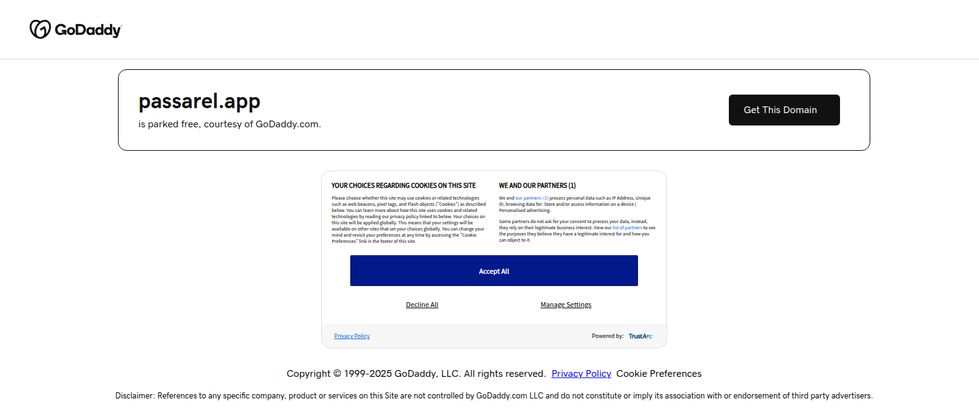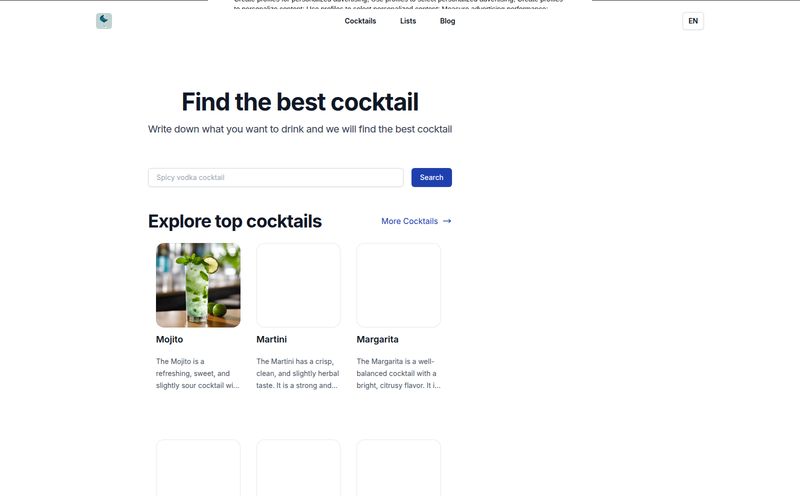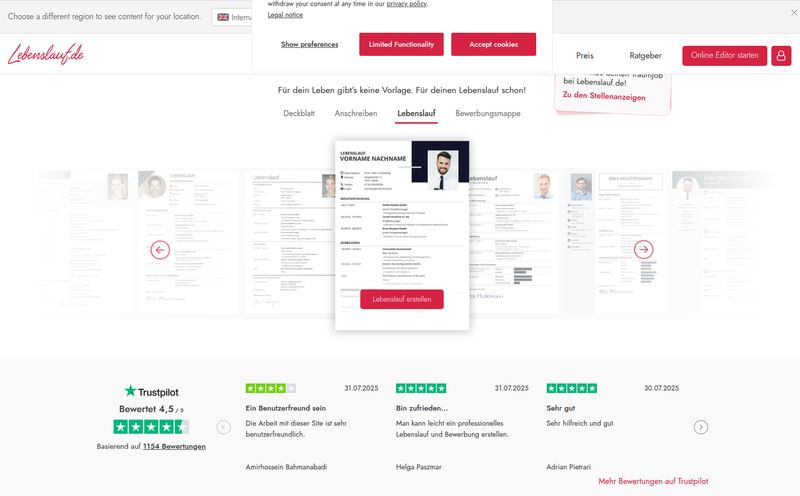I still get a cold sweat thinking about my first day at a digital agency back in 2015. I was handed a laptop, a weak coffee, and a link to a shared drive that looked like a digital attic after a hurricane. The 'onboarding guide' was a 150-page PDF document last updated during the Obama administration. My first week was spent pinging my poor manager with questions like "Where’s the brand style guide?" and "What’s the Wi-Fi password again?" and "Is it okay if I cry at my desk?"
We’ve all been there, right? That new-job-firehose of information that leaves you feeling more swamped than supported. It's a problem that's only gotten trickier with remote and hybrid teams. So, when I hear about a new tool that claims to fix this, my ears perk up. The latest one to cross my desk is called Passarel.
The concept is simple but pretty compelling: it turns your company’s scattered documentation into a custom AI onboarding buddy. A friendly chatbot new hires can talk to 24/7. Sounds like something out of science fiction, but in the age of ChatGPT, it’s becoming our reality. I was intrigued, so I went to check out their site at passarel.app... only to find a GoDaddy parked page. Looks like they're brand spanking new or in stealth mode. Which, for a tech blogger, is kinda exciting. It’s like getting a sneak peek at a movie trailer before it’s officially released. So, based on the early info I could dig up, let's talk about what Passarel is supposed to be.
So, What Exactly is Passarel?
At its heart, Passarel aims to be the ultimate know-it-all for your new employees. But in a good way. The idea is you connect all the places where your company knowledge lives—think of your sprawling Notion workspaces, your chaotic Slack channels, your meticulously organized (or not) Confluence pages, and even random files. Passarel then ingests all this information and uses it to generate a custom Large Language Model (LLM). That’s a fancy way of saying it creates a bespoke chatbot that knows your company inside and out.

Visit Passarel
Instead of a new hire having to hunt for the parental leave policy or figure out how to submit an expense report, they can just ask the Passarel bot: "Hey, how many sick days do we get?" or "Walk me through setting up my development environment." It's like giving your entire company's collective brain a voice. A patient, always-on, non-judgmental voice that doesn’t mind being asked the same question five times.
The Big Promise: Why This Could Be a Real Game-Changer
Let's be honest, the potential here is huge. I’ve worked with so many startups that are growing faster than they can document. Onboarding becomes a massive time-suck for senior staff and a source of anxiety for new hires. A tool like this could solve several headaches at once.
Finally, An End to the "Day One" Information Deluge
The firehose approach to onboarding is just... bad. People can't absorb that much information at once. Passarel promises a self-paced learning experience. New hires can ask questions as they come up, getting instant answers without feeling like they're bothering someone. This is especially golden for remote teams spread across different time zones. Your new engineer in Poland can get an answer at 3 AM their time without waiting for the HR manager in California to wake up.
Freeing Up Your People to Do, Well, People Things
Think about how much time HR managers and team leads spend answering the same basic questions over and over. It's a huge drain on productivity. By automating this first line of support, those people are freed up to focus on the things AI can't do: building personal connections, discussing career growth, checking in on well-being, and handling complex, sensitive issues. You know, the human part of Human Resources.
Okay, Let's Be Realistic: The Potential Roadblocks
Now, as an industry veteran, I’ve learned to temper my excitement with a healthy dose of skepticism. The idea is brilliant, but the execution is everything. And with AI tools like this, there are always a few big 'gotchas'.
The "Garbage In, Garbage Out" Problem
This is the big one. An AI is only as smart as the data it’s trained on. If your company's documentation is a chaotic mess of outdated policies, contradictory information, and drafts from 2018, your shiny new AI onboarding buddy will be a confused, unreliable mess. It might confidently tell a new hire that your biggest client is a company you stopped working with two years ago. To make Passarel work, you first have to get your knowledge house in order. Which, I suppose, is a benefit in itself—it forces good documentation hygiene.
The Ghost of Information Past
Related to the first point is the issue of maintenance. Policies change. Processes are updated. Teams are restructured. Who is responsible for making sure the AI knows about these changes? A tool like this isn't a 'set it and forget it' solution. It requires an ongoing commitment to keeping the source documentation clean and current. Without that, you risk creating an AI that confidently spreads misinformation. A scary thought.
Who is This For? And What’s the Price Tag?
My gut says Passarel is aimed squarely at fast-growing tech companies and startups. The kind of places that already live and breathe in Slack and Notion, and where onboarding is a constant, frantic process. For larger, more traditional corporations with siloed information and legacy systems, the initial setup might be a nightmare.
As for the price? Well, since their site is just a parking page, there's no official pricing yet. If I had to guess, I’d bet on a classic SaaS model. Probably something like:
- A Startup Tier: Maybe $50-$100/month for up to 20 users and 3 data source connections.
- A Growth Tier: Priced per user, say $10/user/month, with more integrations and some customization.
- An Enterprise Tier: Custom pricing for large organizations needing advanced security, priority support, and unlimited everything.
This is pure speculation, of course. But it’s the model that makes the most sense for a B2B tool like this.
Passarel vs. The Old Way of Doing Things
Sometimes a simple table just makes it click. Here’s how I see this stacking up.
| Task | The Old Way (Manual Onboarding) | The Passarel Way (AI Onboarding) |
|---|---|---|
| Answering Questions | New hire interrupts manager/colleague or waits for an answer. | New hire asks AI bot, gets an instant answer 24/7. |
| Finding Information | Hunting through shared drives, wikis, and old emails. | Information is centralized and accessible via a simple chat interface. |
| HR/Manager Time | High, spent on repetitive Q&A and basic guidance. | Low, freed up for high-impact, human-centric tasks. |
| Consistency | Varies depending on who the new hire asks. | Consistent, standardized answers based on official documentation. |
My Final Take: Is It The Future?
I’m cautiously optimistic about tools like Passarel. I don't think they're a magic wand that instantly fixes a broken onboarding process. But I do think they are powerful catalysts. The real value might not just be the chatbot itself, but the fact that it forces a company to finally organize its internal knowledge. That alone is worth its weight in gold.
It’s like getting a brilliant new intern. They're incredibly fast and can process huge amounts of information, but you still need to give them good instructions and keep their training materials up to date. If you can do that, Passarel could genuinely transform onboarding from a week-long headache into a smooth, efficient, and dare I say, enjoyable experience. I’ll definitely be refreshing that parked domain every few weeks to see when it goes live.
Frequently Asked Questions
- 1. What is Passarel in simple terms?
- Passarel is an AI tool that reads your company's documents from places like Slack, Notion, and Confluence, then creates a custom chatbot. New hires can ask this bot questions to get instant answers about the company, making onboarding faster and easier.
- 2. Will Passarel replace our HR managers?
- Not at all. The goal is to augment them, not replace them. It handles the repetitive, low-level questions, freeing up HR professionals to focus on the more strategic and personal aspects of their roles, like employee engagement and development.
- 3. What happens if our company documentation is outdated?
- This is the most critical point. If your docs are outdated, Passarel's answers will be too. Its accuracy is 100% dependent on the quality of the information it's given. Implementing a tool like this requires a commitment to maintaining your knowledge base.
- 4. What kind of platforms can Passarel connect to?
- Based on the initial information, it's designed to connect with modern workplace tools where documentation is commonly stored, including Slack, Notion, Confluence, and other file repositories.
- 5. Is Passarel available to use right now?
- As of late 2024, its website (passarel.app) appears to be a parked domain, which suggests the tool is in a pre-launch, beta, or stealth phase. It's not yet publicly available.
- 6. How does Passarel handle sensitive or private company data?
- This is a crucial question for any company considering the tool. A reputable B2B AI service would need to have robust security protocols, data encryption, and clear policies on how data is handled and stored to ensure confidentiality and compliance. This will be a key thing to look for when they launch.
The potential for tools like Passarel is undeniable. For any company drowning in the onboarding deluge, it could be a real life-saver. Or at least, a major sanity-saver for everyone involved. The future of HR is definitely getting more interesting.
Reference and Sources
- For insights on the importance of a structured onboarding process, see the research from organizations like SHRM (Society for Human Resource Management).
- For more on the rise of AI in human resources, TechCrunch often covers emerging HR tech startups and trends.
- The core functionality of Passarel relies on integrations with platforms like Notion and Slack, which are central to modern knowledge management.



